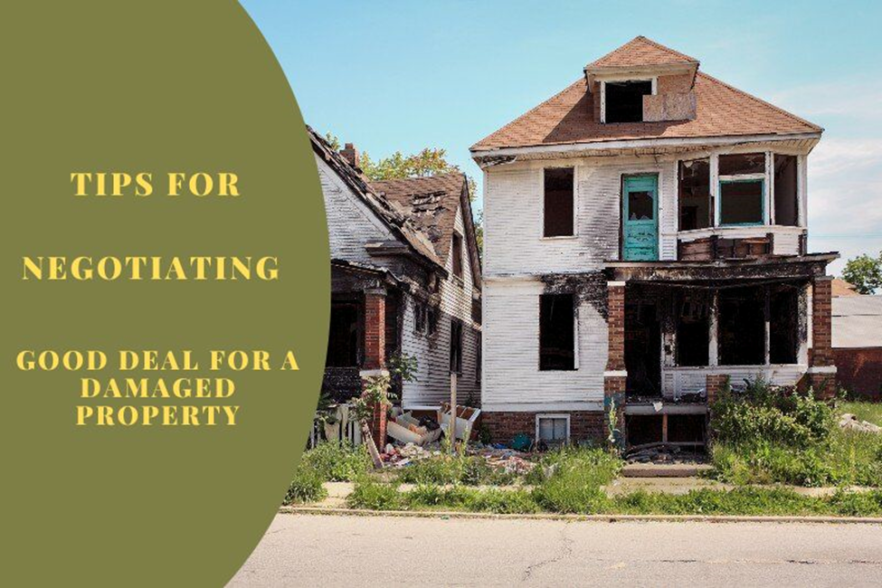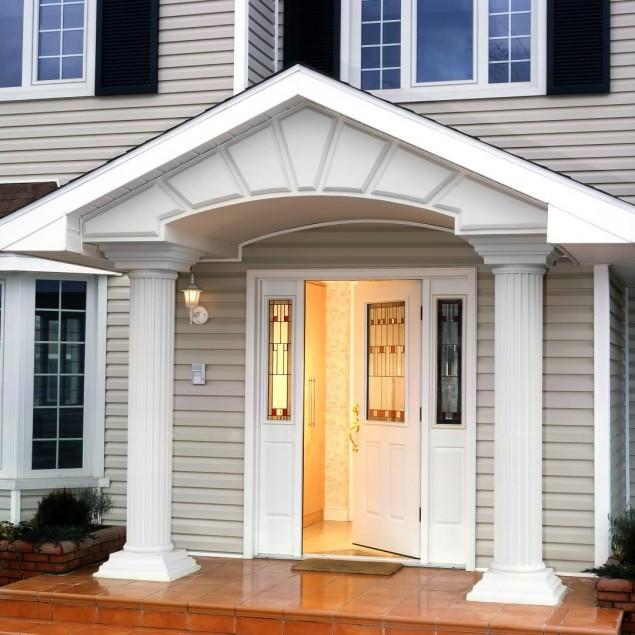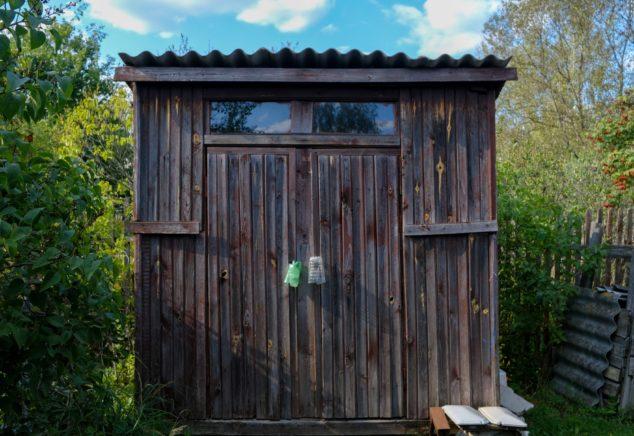If you’re looking to negotiate a good deal for a damaged property, there are several key tips you should keep in mind. By following these strategies, you can increase your chances of selling the property quickly and for a fair price.
Conduct a thorough property inspection
Before you even begin to negotiate a deal, it’s important to conduct a thorough inspection of the property. This will help you identify any damage or issues that may need to be addressed before the property can be sold. By understanding the true condition of the property, you can set a realistic price and avoid any surprises later in the negotiation process.
Research the local market
In order to set a realistic price for the property, you’ll need to do some research on the local market. This includes looking at comparable properties in the area, as well as any recent sales data. By understanding the local market, you can get a better sense of what buyers are willing to pay for a damaged property, and adjust your expectations accordingly.
Set a realistic price
Based on your property inspection and market research, you should set a realistic price for the damaged property. It’s important to be transparent with potential buyers about any damage or issues, and price the property accordingly. A realistic price will help you attract serious buyers and avoid wasting time with those who are not willing to pay what the property is worth.
Determine your walkaway point
It’s important to have a clear sense of your walkaway point before you enter into negotiations. This is the lowest price you are willing to accept for the property, and will help you avoid making any rash decisions or accepting offers that are not in your best interest.
Market the property widely
To attract potential buyers, it’s important to market the property widely. This may include listing the property on multiple real estate websites, using social media to promote the property, and even hosting open houses or virtual tours. The more exposure the property receives, the more likely you are to find a serious buyer.
Target specific buyers
In addition to marketing the property widely, you should also target specific buyers who may be interested in a damaged property. This may include real estate investors or contractors who are looking for fixer-upper properties. By targeting specific buyers, you can increase your chances of finding a buyer who is willing to pay a fair price for the property.
Highlight positive features of the property
While it’s important to be transparent about any damage or issues with the property, it’s also important to highlight its positive features. This may include its location, size, or unique features that set it apart from other properties in the area. By emphasizing the positive, you can make the property more attractive to potential buyers.
Disclose all damage
When negotiating a deal for a damaged property, it’s important to be transparent about any damage or issues. This will help you build trust with potential buyers and avoid any legal issues down the line. By being upfront about any damage or issues, you can avoid any surprises later in the negotiation process.
Evaluate buyer offers carefully
When you receive offers from potential buyers, it’s important to evaluate them carefully. This may include considering the buyer’s financing options, as well as their willingness to negotiate on price or other terms. By carefully evaluating each offer, you can find the best deal for your specific situation.
Use creative solutions in negotiations
Sometimes, negotiations may stall due to disagreements over price or other terms. In these situations, it may be helpful to use creative solutions to find a compromise. This may include offering financing options or other incentives to sweeten the deal for potential buyers.
Consider financing options
Financing options can be an important part of negotiating a deal for a damaged property. This may include offering seller financing, which allows the buyer to make payments over time instead of paying the full price upfront. You may also want to consider working with a lender who specializes in financing for damaged properties, as this can help attract more potential buyers who may not be able to secure traditional financing.
Address legal issues with the help of professionals
When negotiating a deal for a damaged property, it’s important to address any legal issues that may arise. This may include issues with the property title or any outstanding liens or debts. Working with a real estate attorney or other legal professional can help ensure that the negotiation process goes smoothly and that all legal requirements are met.
Prepare for the closing process
Once you’ve agreed to a deal with a buyer, it’s important to prepare for the closing process. This may include working with a title company to transfer the property title, as well as completing any necessary paperwork or documentation. By being prepared for the closing process, you can ensure that the sale goes smoothly and that you receive your payment in a timely manner.
Maintain buyer satisfaction
After the sale is complete, it’s important to maintain buyer satisfaction. This may include addressing any issues that arise after the sale, as well as providing helpful resources or information to the new property owner. By maintaining buyer satisfaction, you can build a positive reputation in the real estate industry and increase your chances of future success.
Be flexible and open-minded
Finally, it’s important to be flexible and open-minded throughout the negotiation process. This may involve adjusting your expectations or being willing to consider different offers or terms. By being flexible and open-minded, you can increase your chances of finding a buyer who is willing to pay a fair price for the damaged property.
Frequently Asked Questions
Q: What is a damaged property?
A: A damaged property is a property that has suffered some type of physical or structural damage, such as from a natural disaster, fire, or other unexpected event.
Q: How can I negotiate a good deal for a damaged property?
A: To negotiate a good deal for a damaged property, you should conduct a thorough inspection, research the local market, set a realistic price, and be transparent about any damage or issues. Additionally, you should consider using creative solutions in negotiations, addressing legal issues with the help of professionals, and maintaining buyer satisfaction.
Q: Should I disclose all damage when negotiating a deal for a damaged property?
A: Yes, it’s important to disclose all damage when negotiating a deal for a damaged property. This helps to build trust with potential buyers and ensures that the negotiation process is transparent and honest.
Q: What should I do if I receive multiple offers for my damaged property?
A: If you receive multiple offers for your damaged property, evaluate each offer carefully and consider the terms and conditions of each. You may want to work with a real estate agent or other professional to help you navigate the negotiation process and choose the best offer for your needs.
Q: How can I finance the sale of a damaged property?
A: There are a variety of financing options available for the sale of a damaged property, including traditional mortgages, seller financing, and specialized financing for damaged properties. Working with a lender who specializes in financing for damaged properties can help you attract more potential buyers and increase your chances of a successful sale.
In conclusion, negotiating a good deal for a damaged property requires careful planning and attention to detail. By conducting a thorough inspection, researching the local market, setting a realistic price, and being transparent about any damage or issues, you can increase your chances of finding a serious buyer. Additionally, by using creative solutions in negotiations, considering financing options, and addressing legal issues with the help of professionals, you can ensure that the negotiation process goes smoothly and that the sale is completed in a timely and efficient manner.








